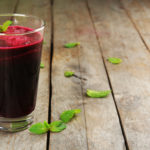By David Blyweiss, M.D., Advanced Natural Wellness
September 13, 2021
I drink kombucha every night. It’s a fizzy, tangy, and sometimes sweet drink. And it’s delicious.
But one of my favorite thinks about kombucha is that it’s filled with gut-friendly pre and probiotics that keep my gut microbiome ticking along at full speed, as well as digestive enzymes to support my own digestion.
It’s one of many fermented foods that support the immune system, reduce inflammation and protect your health.
The funny thing is, ancient cultures have been eating fermented foods for centuries. If you think about the food sources available to our ancestor, fermentation would have made foods a lot more digestible. Probably tastier, too. Plus it kept them from spoiling and making people sick.
Little did those folks know that they were also feeding the good bugs in their guts and promoting good health.
MD Exposes the Hidden Danger to Your Eyes

When your eyesight starts to fail, it's a real problem. Suddenly you can't go to the grocery store... you can't get to the doctor if you have an emergency... you can't meet your friends for dinner…
Your "regular" doctor doesn't have time to keep up with the latest research. And the same goes for eye doctors. They go to school to learn how to fit you for glasses and contacts, but have no way of preventing the damage and loss of eyesight that threatens your freedom and independence.
Let me show you something that explains a LOT about how your eyes work.
In my FREE Special Report, I'll show you a HUGE, untapped resource for your eyes that safely and naturally restores clear, effortless eyesight.
Click here to get started...
Some countries like Korea, Japan and China still eat fermented foods on a daily basis. But it’s only recently that these foods are rising in popularity here in America. I’m glad to see it.
Eating fermented foods increases microbiota diversity in the gut, supports a healthy immune response and lowers markers of inflammation. This goes a long way in explaining why they also support cardiovascular health, glucose metabolism and insulin response. Some fermented foods even protect against cancer.
Are All Pickles and Sauerkraut Fermented?
Now, most people think that all pickles and sauerkraut are fermented. That’s not true.
Some pickles are… well… just pickled. They are boiled in a vinegar solution to kill any microorganisms on them. This also kills the good probiotics, while the heat destroys any nutritional value of the pickle. It’s really just a process to create that sour flavor we associate with pickles.
When pickles are fermented, they are placed raw in a salt brine. While soaking, the food’s sugars and natural bacteria produce probiotic organisms and create a naturally sour flavor.
So you can either eat a pickle that has no actual health benefits, or one that’s alive with probiotics and rich in nutrition. The good pickles will not have any vinegar in the ingredient list. Look for the ones made with salt or, better yet, sea salt.
Sauerkraut has a similar problem. When you buy a can at the store, it’s been pasteurized at high temperatures. So good luck finding any living organisms in it.
Instead, you want to buy the sauerkraut in the refrigerated section that says it’s raw, unpasteurized or naturally fermented. That’s where you’ll get the good stuff. If you can find an organic brand, that’s even better.
The World's Quickest Solution for Ending Prostate and Urinary Misery
This has recently been revealed to be one of the only real breakthroughs in prostate health.
The seeds of a strange fruit (sometimes called "Chinese Apples") hold powerful phytonutrients that are a revolution in prostate health.
In fact, UCLA and Veterans Administration research have now proved this to be true.
Not only that, but it may be the worlds quickest solution for ending prostate misery.
Simply stated, these phytonutrients represent a huge step beyond beta sitosterol, saw palmetto, and other phytosterols alone.
Simply click HERE if you want to have fast prostate relief...restful, uninterrupted sleep...no more constant "urges to go"...enhanced virility...and optimal prostate support for life.
The Best Fermented Foods for You
One of my favorite fermented foods is kimchi. As a matter of fact, I just ran up to the store to get some to eat as a side dish with my dinner. It’s a spicy Korean dish made using fermented vegetables like cabbage, radishes and hot peppers. You can use it as a side dish, add it to pasta or zucchini noodles, or as a filler for wraps and pitas.
Other good choices include:
Tempeh, an Indonesian food that’s made from cooked and slightly fermented soybeans. Once it’s fermented, it can be pressed into a patty or loaf, and then cooked. It’s grainier than tofu and has a nutty flavor. Like tofu, it absorbs flavor from sauces and spices.
Kefir is a fermented dairy drink that can act as a great replacement for cow’s milk. I tend to think of it as a drinkable form of yogurt with a rich source of easily digestible protein, vitamins and minerals.
Miso is another good fermented food, and pretty well known here in the U.S. since it is used in miso soup.
Natto is a popular food in Japan, but I’m not sure I would recommend it as an introduction to fermented foods. It’s basically fermented soybeans that are often topped with soy sauce, mustard or other seasonings. However, I have to admit: the smell and texture can be off-putting. So save this one for a day when you’re feeling downright adventurous.
And as far as commercial yogurts are concerned, I’ve seen some evidence that many of the probiotic dosages in them are too low to provide the health benefits shown in studies.
Sure. You can look for the “Live & Active Cultures seal” on yogurt. It guarantees that the product contained 100 million cultures per gram at the time of manufacture. However, it doesn’t guarantee that number won’t dwindle to a small fraction by the time you eat it. So it’s a crap-shoot either way.
Your safest bet is opting for an organic Greek yogurt with no added sugars or artificial flavors.
Just beware. When you start eating more fermented foods your gut bacteria will produce increased levels of gas that can make you gassy and bloated. So start off slowly and add more fermented foods over time. Your gut bacteria will thank you!
SOURCES:
Wastyk HC, Fragiadakis GK, Perelman D, Dahan D, Merrill BD, Yu FB, Topf M, Gonzalez CG, Van Treuren W, Han S, Robinson JL, Elias JE, Sonnenburg ED, Gardner CD, Sonnenburg JL. Gut-microbiota-targeted diets modulate human immune status. Cell. 2021 Aug 5;184(16):4137-4153.e14.
Patra JK, Das G, Paramithiotis S, Shin HS. Kimchi and Other Widely Consumed Traditional Fermented Foods of Korea: A Review. Front Microbiol. 2016;7:1493.
Kim EK, An SY, Lee MS, Kim TH, Lee HK, Hwang WS, Choe SJ, Kim TY, Han SJ, Kim HJ, Kim DJ, Lee KW. Fermented kimchi reduces body weight and improves metabolic parameters in overweight and obese patients. Nutr Res. 2011 Jun;31(6):436-43.
Tasdemir SS, Sanlier N. (2020). An insight into the anticancer effects of fermented foods: A review. Journal of Functional Foods. 2020 Dec;75:104281.
Dimidi E, Cox SR, Rossi M, Whelan K. Fermented Foods: Definitions and Characteristics, Impact on the Gut Microbiota and Effects on Gastrointestinal Health and Disease. Nutrients. 2019;11(8):1806.







